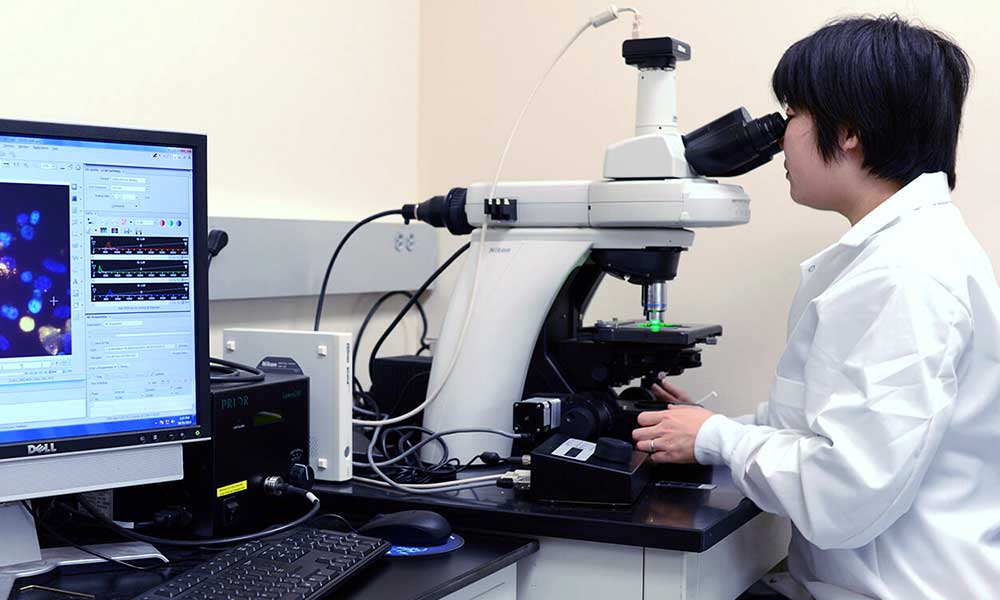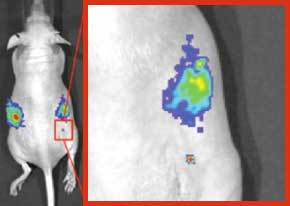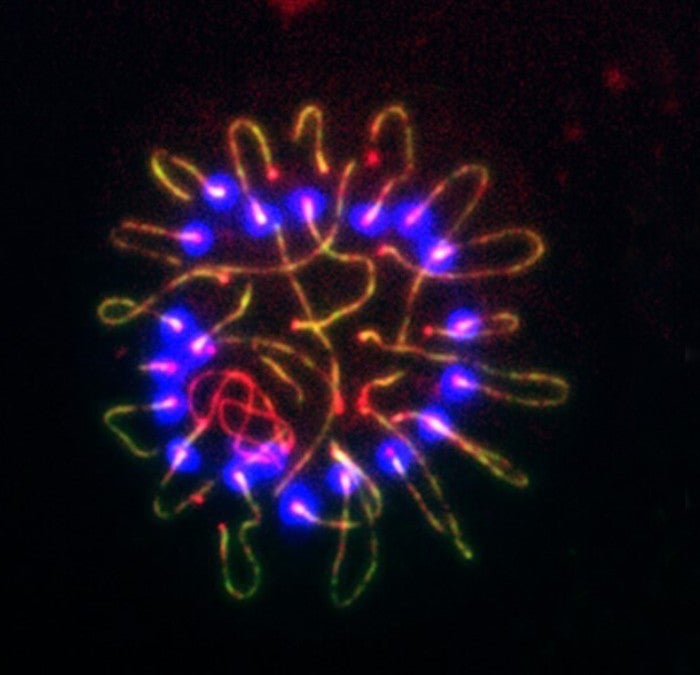Technology Platforms
The Department of Biomedical Sciences maintains its research excellence with the latest technological platforms and shared facilities that support faculty research programs within the department and across the University of Pennsylvania. Our core technology platforms house state-of-the art research equipment, and we anticipate developing new platforms with the emergence of new research areas in our department.

Small Animal Non-Invasive Imaging Facility
The Small Animal Imaging Facility (SAIF) at the School of Veterinary Medicine was established in 2014 to provide the Penn and Philadelphia research community with a suite of pre-clinical small animal imaging devices. These state-of-the-art instruments offer non-invasive imaging opportunities to study drug, tissue and cellular mechanisms in live animals. This includes optical imaging (bioluminescence, fluorescence, and near-infrared) as well as Ultrasound and Doppler imaging for, but not limited to, research in oncology, cardiology, gynecology, hematology, neuroscience, stem cell and developmental biology.
The goal of the SAIF is to provide investigators with a comprehensive, state-of-the-art imaging service and the necessary tools for in vivo imaging research. This includes:
- Thorough instrument training on all imaging devices
- Assistance in preliminary experimental design and for technical and research troubleshooting
- Extensive support for data acquisition, processing, analysis, quantification and interpretation.
Interested in learning more about this technology? Please see the links below for more information about our equipment and techniques.
For questions, queries and scheduling please contact:
- Ellen Puré, Department Head, epure@vet.upenn.edu
- Serge Fuchs, syfuchs@vet.upenn.edu
Measuring Tumor Size
The Small Animal Non-Invasive Imaging Facility uses 3D visualization to study blood flow, volume, and tumor size.

Single-cell bioluminescent imaging of a 4T1-luc2 cell in vivo. The Lumina Ill allows measurement of tumor growth and metastasis using a small number of cells before tumors become palpable.
Center for Animal Transgenesis & Germ Cell Research
Over the past 30 years, techniques have been developed that enable the modification of individual genes in animals and plants and thereby precisely alter inherited traits. These genetically altered organisms, called transgenic, and are of enormous value in medicine and agriculture. Scientists at the School of Veterinary Medicine performed pioneering studies in the development of transgenic techniques and were responsible for production of the first transgenic mice and farm animals.
Capitalizing on years of foundation research, the Center for Animal Transgenesis and Germ Cell Research was established in 1998. Our primary mission is to undertake innovative research on stem cell biology, germ cell development, and animal transgenesis. The Transgenesis Core is equipped with state of the art equipment and is supported by fully trained personnel and is located in a barrier, pathogen free small animal facility that is accredited by Association for Laboratory Animal Care (AAALAC) and supervised by trained veterinarians.

Contact the Biomedical Sciences Department
Our department is supported by a core of dedicated professional and administrative staff.
Department of Biomedical Sciences
216E Old Vet Quad
3800 Spruce Street
Philadelphia, PA 19104
